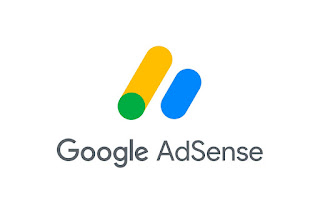Selecting the right niche for your AdSense website is crucial for sustained success and long-term revenue. A well-chosen niche not only attracts high-quality traffic but also commands higher ad prices, ultimately leading to better monetization. Here’s why niche selection is the cornerstone of your AdSense strategy and how you can make the best choice for your site.
Â
Table of Contents
1. High-Paying Niches Attract Competitive Advertisers
Certain niches, like finance, real estate, and health, attract advertisers who are willing to pay more for clicks due to the competitive nature of their industries. When you select a high-paying niche, you increase your chances of earning more from each ad click. For more on how to choose profitable niches, check out our guide on 10 Ways to Increase Your AdSense Revenue in 2024.
Â
2. Niche Relevance Boosts User Engagement
When your content closely aligns with your chosen niche, it naturally attracts visitors who are genuinely interested in the topic. This relevance boosts user engagement, which leads to higher click-through rates (CTR) and increased AdSense revenue. For tips on optimizing your CTR, explore our article on How to Optimize CTR for AdSense Success.
3. Consistency in Content Creation
A clearly defined niche allows you to create consistent, targeted content that speaks directly to your audience’s needs and interests. Consistent content not only helps with SEO but also builds authority in your niche, attracting more organic traffic over time. Learn more about content strategy in our blog post on Effective Content Strategies for AdSense Optimization.
4. Better Ad Relevance and User Experience
Selecting a niche allows AdSense to serve more relevant ads to your audience, enhancing the user experience. Relevant ads are more likely to be clicked, which directly impacts your earnings. For an in-depth understanding of ad relevance, you might want to read Google’s AdSense Help Center on improving ad performance.
5. Scalability and Growth Potential
A niche with growth potential allows you to scale your content and expand into related sub-niches over time. For instance, a blog in the health niche can diversify into fitness, nutrition, or mental wellness topics, providing endless content opportunities. For more insights on scaling your AdSense earnings, see our detailed post on AdSense Scaling Strategies.
6. Reduced Competition in Micro-Niches
Targeting a micro-niche within a broader industry can reduce competition and make it easier for you to rank on search engines. For example, instead of targeting the broad “tech” niche, you could focus on “smart home gadgets” or “AI tools for small businesses.” Check out Moz’s Guide on Finding Micro-Niches to help you identify less competitive yet profitable niches.
Â
7. Higher Lifetime Value of Visitors
Niches that address long-term needs or recurring problems can create a steady stream of returning visitors, each representing potential multiple ad clicks over time. This boosts the lifetime value of each visitor. To understand visitor value in-depth, refer to Neil Patel’s blog on lifetime customer value.
8. Enhanced SEO Targeting
When you specialize in a niche, you can better target specific long-tail keywords that have less competition but higher conversion rates. This targeted SEO approach not only drives more relevant traffic to your site but also improves your AdSense performance. For more SEO tips, read our article on SEO Best Practices for AdSense Websites.
9. Increased Trust and Authority
Focusing on a specific niche helps build trust and authority with your audience, which can lead to more loyal readers and higher engagement rates. A niche-focused site is perceived as more credible, which can also improve your ad performance. For tips on building authority, you might find HubSpot’s guide on thought leadership helpful.
10. Aligns with Your Passion and Expertise
Finally, choosing a niche that aligns with your personal passion and expertise not only makes content creation more enjoyable but also ensures that you can maintain the quality and consistency needed for long-term success. For advice on matching your niche with your skills, see our post on Finding the Right Niche for Your AdSense Blog.
By carefully selecting your niche, you set the foundation for long-term AdSense success. Keep these factors in mind as you choose your path, and you’ll be well on your way to building a profitable AdSense site. For more resources, visit our AdSense Resource Hub.
If you have further questions or need guidance on AdSense optimization, explore our FAQ on AdSense Optimization.
FAQ: AdSense Niche Selection
1. Why is niche selection important for AdSense success?
Niche selection is crucial because it determines the type of audience you attract, the level of competition, and the value of the ads displayed on your site. A well-chosen niche with high advertiser demand can lead to higher earnings per click and better overall revenue.
2. What are high-paying niches in AdSense?
High-paying niches include finance, real estate, technology, health, and insurance. These niches attract advertisers who are willing to pay more for clicks due to the competitive nature of these markets.
3. How do I choose the best niche for my AdSense site?
Choose a niche that balances your interests, expertise, and market demand. Look for niches with sufficient search volume and moderate competition, and consider whether advertisers are active in that space. Use tools like Google Keyword Planner and Moz to analyze keyword potential and competition.
4. Can I switch niches after starting my AdSense site?
Yes, you can pivot to a different niche, but it requires a strategic approach. Shifting niches involves updating your content, optimizing for new keywords, and possibly rebranding your site. It’s important to assess the impact on your existing audience and search rankings before making a switch.
5. What is a micro-niche and how can it benefit my AdSense site?
A micro-niche is a highly specialized subset of a broader niche. For example, instead of targeting the general “fitness” niche, you might focus on “yoga for seniors.” Micro-niches often have less competition, making it easier to rank on search engines and attract a dedicated audience.
6. How does niche relevance impact ad performance?
When your content closely matches the ads being displayed, users are more likely to click on them. A niche that aligns well with high-paying keywords improves ad relevance, leading to higher click-through rates (CTR) and better revenue.
7. What are some tools to help find a profitable AdSense niche?
Useful tools for niche research include Google Keyword Planner, Ahrefs, SEMrush, Moz, and Google Trends. These tools help you analyze search volumes, keyword competition, and advertiser interest, guiding you toward more profitable niche selections.
8. How important is it to align my niche with my personal interests?
Aligning your niche with your personal interests or expertise can make content creation more enjoyable and sustainable. It also helps ensure you produce high-quality, engaging content, which is essential for building a loyal audience and improving your AdSense performance.
9. How can I expand my AdSense site within a chosen niche?
You can expand by exploring related sub-niches or creating additional content types like videos, podcasts, or interactive tools. For example, a site focused on “digital marketing” could expand into “SEO tips,” “social media strategies,” or “content marketing case studies.”
10. What should I avoid when selecting a niche for AdSense?
Avoid overly saturated niches with high competition unless you have a unique angle or significant expertise. Also, steer clear of niches that have limited advertiser interest or low-paying ads, as they can limit your revenue potential.


